Emiratis are 'cheerleaders' for US role in Middle East: UAE ambassador to Washington
The UAE's ambassador to the United States has described officials in his Persian Gulf country as “cheerleaders” for the US role in the Middle East, saying the recent normalization agreement between Abu Dhabi and the Israeli regime would not have taken place without the White House's tutelage.
Speaking Thursday at a virtual meeting with the Anti-Defamation League, a pro-Israel group which tracks anti- Semitic attacks, Yousef al-Otaiba commended US President Donald Trump for brokering the UAE-Israel deal in “less than four weeks.”
Otaiba then sought to paint a rosy picture of Washington’s role in the region, saying, “We're not only in the pro-US camp. We are the cheerleaders of the pro-US camp.”
In an op-ed published in Israel’s largest Hebrew language daily Yedioth Ahronoth last June, Otaiba promoted normalization with Israel.
He was among the three Arab ambassadors who attended Trump’s January unveiling of his so-called Middle East plan, dubbed the deal of the century.
The so-called deal of the century envisions Jerusalem al-Quds as “Israel’s undivided capital” and allows the Tel Aviv regime to annex settlements in the occupied West Bank and Jordan Valley. The plan also denies Palestinian refugees the right of return to their homeland, among other controversial terms.
Trump’s plan was immediately rejected by the Palestinians, and has triggered waves of protest around the globe.
Otaiba went on to allege on Thursday that the UAE-Israel deal kept the “two-state solution alive.”
“What we did was we put time on the clock. Now how the parties use that time on the clock to their advantage, that's ultimately their decision,” the UAE ambassador said.
Israel and the UAE agreed to a US-brokered deal to normalize relations on August 13. Under the agreement, the Tel Aviv regime has supposedly agreed to "temporarily" suspend applying its own rule to further areas in the West Bank and Jordan Valley that Israeli Prime Minister Benjamin Netanyahu had pledged to annex.
While Emirati officials have described the normalization deal with the Tel Aviv regime as a successful means to stave off annexation and save the so-called two-state solution to the Israeli-Palestinian conflict, Israeli leaders have lined up to reject the bluff of Abu Dhabi's crown prince and de facto ruler of the UAE, Sheikh Mohammed bin Zayed Al Nahyan, that Israel's annexation plans were off the table.
Netanyahu has underlined that annexation is not off the table, but has simply been delayed.
The Israeli prime minister signed agreements with Emirati Foreign Minister Sheikh Abdullah bin Zayed Al Nahyan and Bahrain's Foreign Minister Abdullatif Al Zayani during an official ceremony hosted by Trump at the White House on September 15.
Palestinians, who seek an independent state in the occupied West Bank and Gaza, with East Jerusalem al-Quds as its capital view the deals as betrayal of their cause.
Palestinian President Mahmoud Abbas protested the normalization deals with Israel, saying they will be fruitless as long as the United States and the Israeli regime do not recognize the rights of the Palestinian nation and refuse to resolve the issue of Palestinian refugees.
Friedman: UAE has to wait 7 years to receive F-35
An early hurdle in UAE-Israeli relations has been Abu Dhabi’s push to acquire American F-35 stealth fighter jets.
The Trump administration, on the other hand, is studying how to structure an agreement without running afoul of Israel as any deal must satisfy decades of agreements with the Tel Aviv regime.
A longstanding American tradition maintains that any US weapons sold to the Middle East must not impair Israel’s qualitative military edge (QME), guaranteeing US weapons furnished to the regime are “superior in capability” to those sold to Washington’s regional allies.
US Ambassador to Israel David Friedman said on Wednesday it would likely take six to seven years before the UAE receives the F-35 stealth aircraft.
“The Emiratis have been trying to get the F-35 for six or seven years. The delivery time is probably another six or seven years from now, if they got [approval to purchase the aircraft],” Friedman said in an interview during a Jerusalem Post newspaper conference.
The Reuters news agency, citing sources close to the US-UAE negotiations, said on Tuesday that the two sides hope to have an initial agreement on the sale of the warplanes to the Persian Gulf state for UAE National Day, celebrated on December 2.
Greta Thunberg arrested at London protest supporting Palestine Action hunger strikers
Trump’s travel ban 2.0: Sweeping racism and Islamophobia masquerading as security
The expanding footprint of Iran’s citrus industry
Russia backs Iran’s stance, rejects including missiles in nuclear talks
Israeli arms manufacturers boast about products after Gaza genocide
French MP calls for inquiry into Paris arms transfers to Israel
US boat strike kills another person in eastern Pacific
VIDEO | Press TV's news headlines







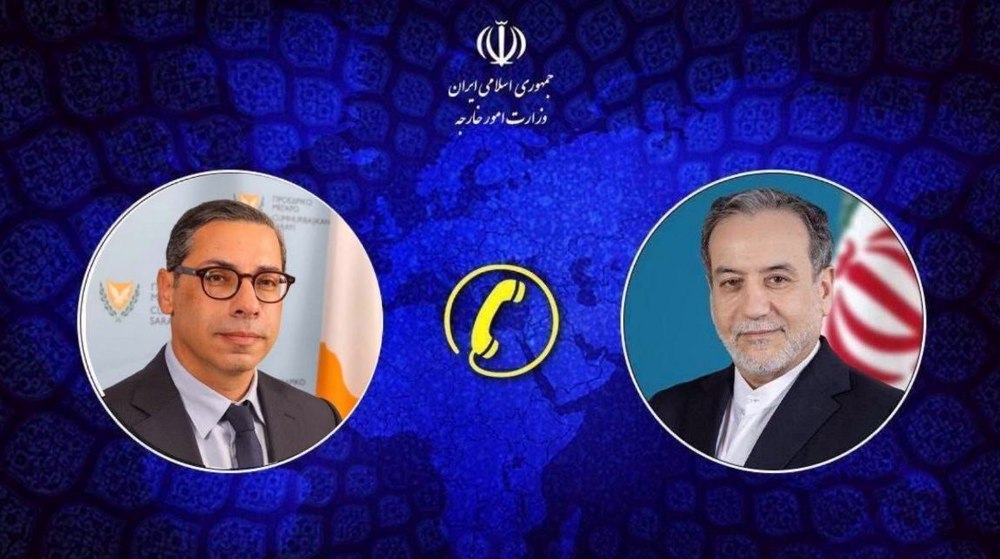
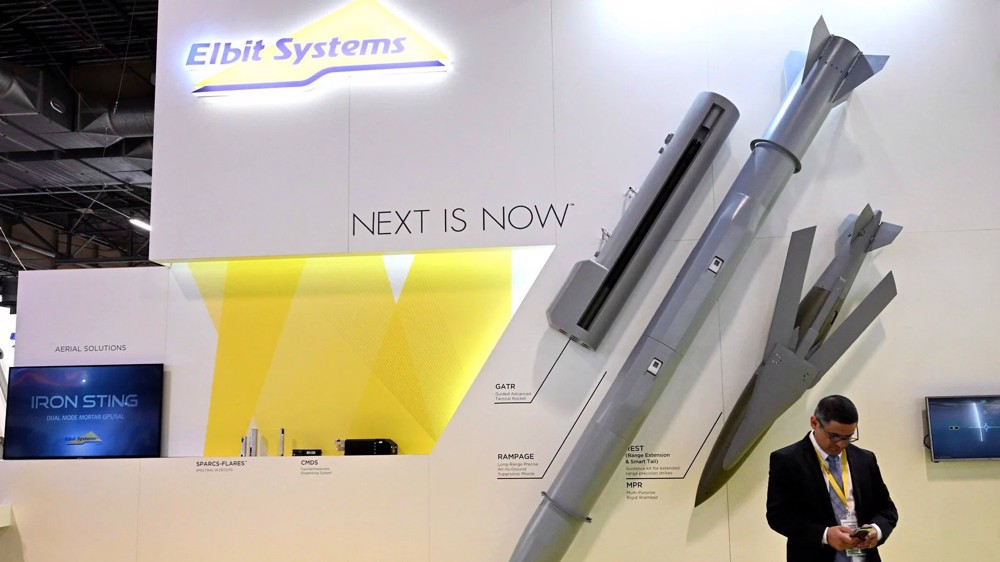
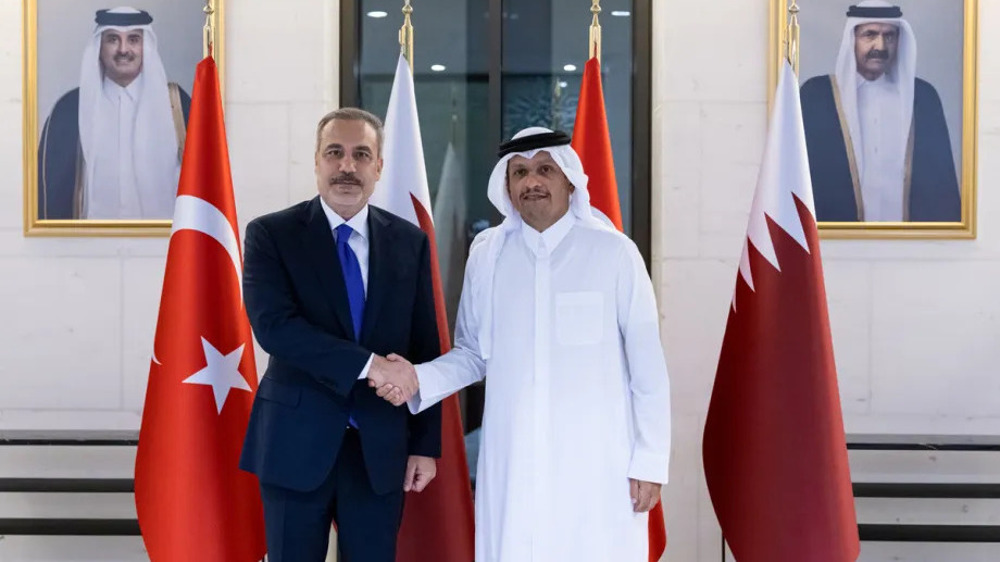



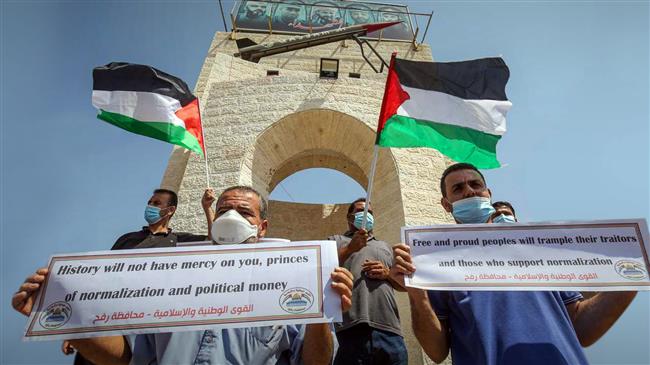
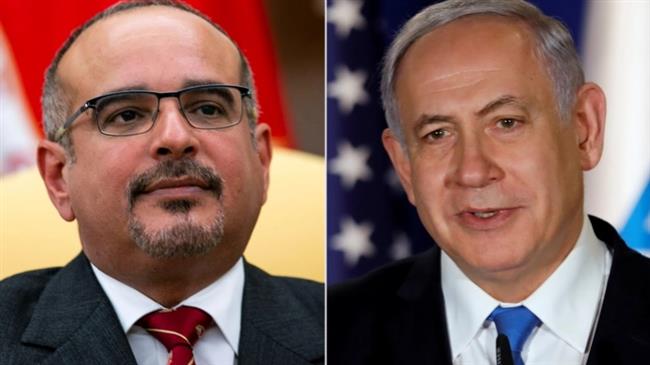

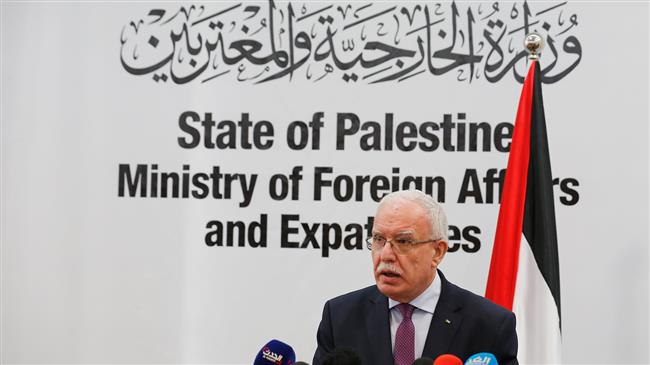

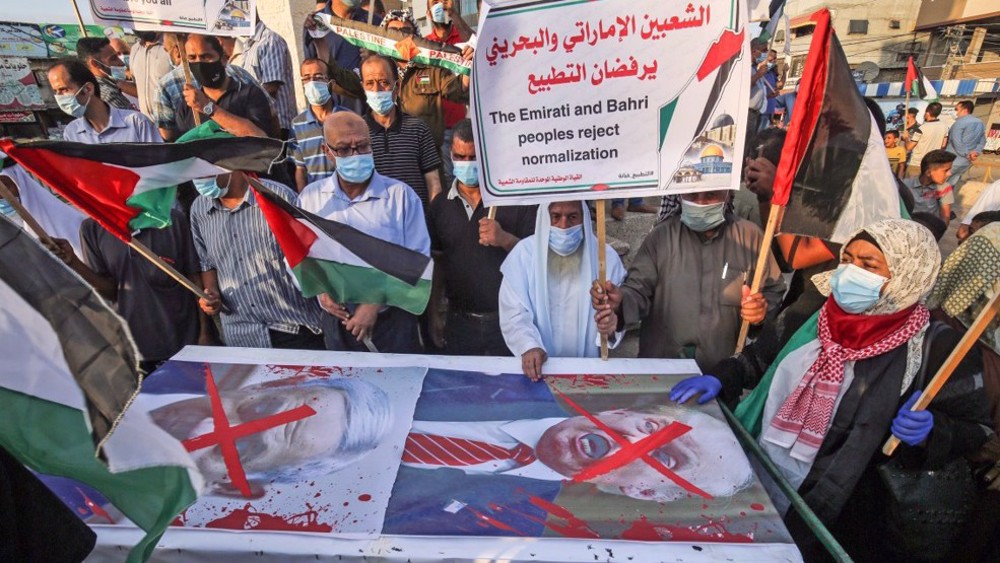
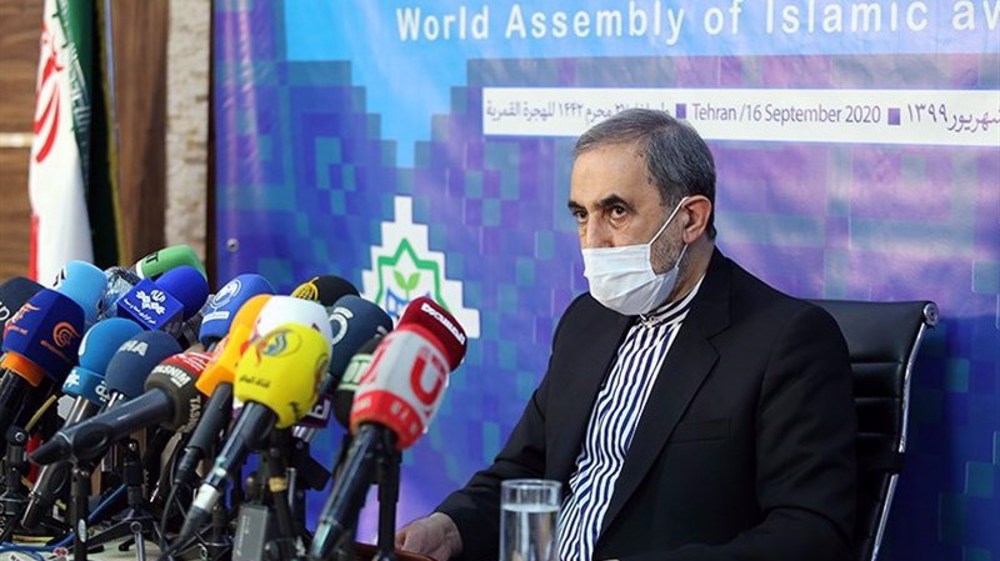

 This makes it easy to access the Press TV website
This makes it easy to access the Press TV website